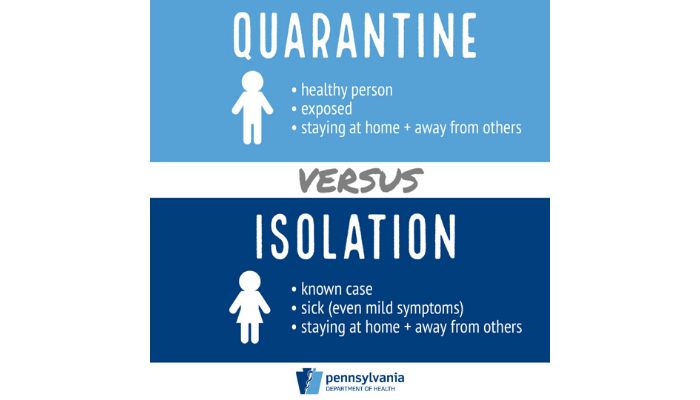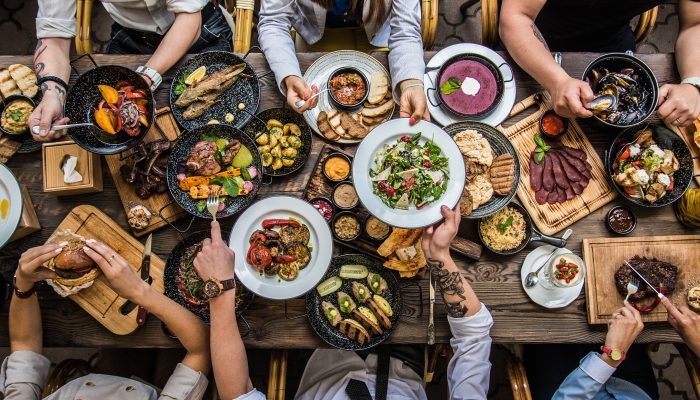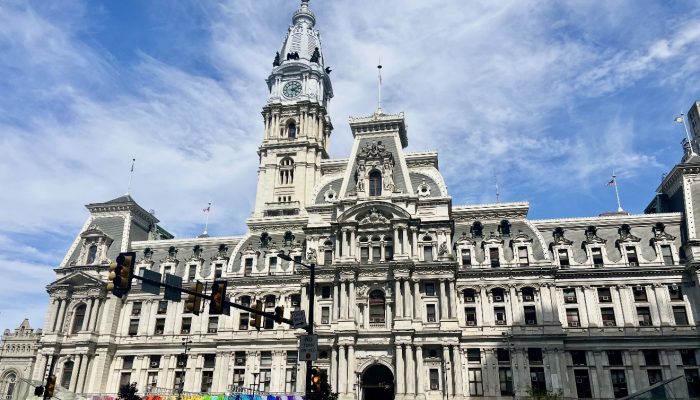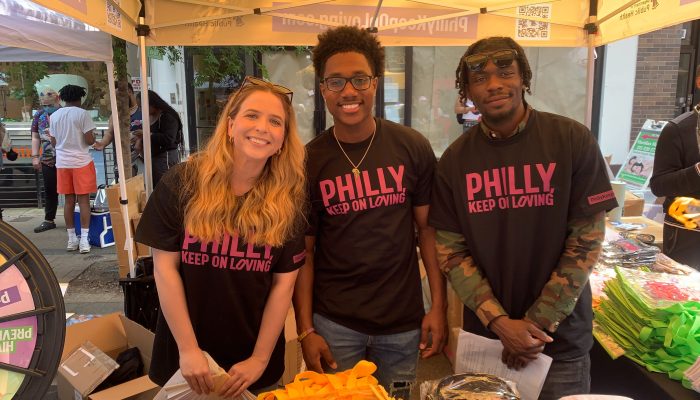In this moment, Philadelphians (who are not doing essential work or running quick life-sustaining errands) should be at home. The best way to prevent the spread of COVID-19 coronavirus is to keep people who have the illness from coming into contact with people who don’t. This means everyone should be practicing social distancing.
How should you practice social distancing?
- Reduce the number of people you are around – the fewer, the better, but especially avoid groups.
- Stay at least 6 feet away from people not in your household.
- Try to get supplies you need delivered instead of going out. Ask that deliveries be left outside your door instead of accepting them in person.
- If you do have to go to the store, choose a time when it is not crowded, avoid touching your face, and wash your hands or use hand sanitizer as soon as you leave.
- If you do essential work (thank you!), travel there and back in ways that avoid contact with others, maintain 6 feet of distance with your coworkers and customers/clients, avoid touching your face, and wash your hands (or use hand sanitizer) frequently.
- Call people on the phone instead of visiting them in person.
How should you protect yourself and others in the home from COVID-19 infection?
- Wash your hands often with soap and water, or use hand sanitizer.
- Try to not touch your eyes, nose, or mouth if you haven’t washed your hands.
- Try to stay away from people who are sick.
- If you are sick, stay home and try to stay away from other people.
- Always cover your mouth and nose with a tissue or your sleeve when you cough or sneeze.
- Using a mask is only recommended for someone who could have or is confirmed to have COVID-19 and their caretakers.
- Clean surfaces that people touch often like doorknobs, counters, phones, or bathroom faucets.
- Try to avoid touching commonly touched objects like elevator buttons or handrails. \Wash your hands with soap and water or use hand sanitizer immediately after touching these objects.
What is the difference between isolation and quarantine?
Like social distancing, isolation and quarantine protect the public from exposure to contagious diseases, like COVID-19 coronavirus.
- Isolation separates people who are sick, and showing symptoms of COVID-19, from others who are not sick. Isolation keeps people who know they are infected away from healthy people.
- Quarantine separates people who know they were exposed to someone with COVID-19 coronavirus, or who recently traveled to a location where the disease was spreading rapidly. Quarantines are for people who do not show symptoms, but should be kept separate because they have a higher-than-average likelihood of having been exposed to the disease. People in quarantine do not leave quarantine for at least 14 days.
When should you isolate from others?
If you are experiencing the common symptoms of COVID-19: fever, dry cough, shortness of breath, and fatigue.
- If you have mild symptoms, stay home, rest, and avoid contact with others until you feel completely better.
- Because there is no medication for COVID-19, you are safer staying home with mild symptoms than going to a place where you might expose others or be exposed to others with illness.
- Learn more about who should be tested.
When should you quarantine from others?
- If you were recently exposed to someone with a positive test for COVID-19 coronavirus.
- If you were recently exposed to someone with symptoms of COVID-19.
- If you recently traveled outside of Philadelphia and may have come into contact with an infected person.
- If you have traveled to an area with a high number of cases.
- If you have traveled to a high-risk country within the last 14 days. Visit the CDC page for travelers returning from high-risk countries.
- If you have traveled to New York City or the surrounding counties (Nassau, Westchester or Suffolk counties in NY or Bergen County in NJ) within the last 14 days quarantine and monitor for symptoms for 14 days.
How long should you quarantine?
- Stay home for 14 days from the time you left an area with community spread of COVID-19, or from the time you may have been exposed to an infected person.
How can you prepare if you are told to stay home for 14 days?
- Talk with your primary health care provider and pharmacist to see if you can have a 90–day supply of prescription medications for yourself and other household members.
- It’s also a good idea to maintain a supply of over-the-counter medications, such as fever-reducing medications like Tylenol, or other medications that household members use regularly.
- Think about storing extra water or non-perishable food at home, so you’ll have some if you can’t go grocery shopping.
- It’s a good idea to have enough essential household items, like cleaning products, detergent, pet care items, and diapers, if you have young children.
- The Philadelphia Office of Emergency Management has tips on which essential items you should store at home in preparation for any emergency.
- Talk to your employer to find out about working remotely and about sick leave.
- If you have elderly parents or relatives, consider how you will care for them if they get sick. If they rely on a caregiver, make back-up plans in case that caregiver becomes sick and is unable to work.
What should I do during quarantine and isolation
- Monitor your health and take your temperature with a thermometer twice a day.
- Stay home and avoid contact with others.
- Practice social distancing. Do not take public transportation, avoid crowded places, and keep your distance from others.
- Clean surfaces that people touch often like doorknobs, counters, phones, or bathroom faucets. Be sure to follow the label instructions.
- For home cleaning guidance, visit the Health Department’s COVID-19 coronavirus resources page.
- Have necessities like groceries delivered to your house.
- Wash your hands often with soap and water.
- Cover your mouth and nose with a tissue when you sneeze or cough.
- Avoid touching your face if you haven’t washed your hands.
- Avoid sharing drinks and eating utensils like forks and spoons.
How can others in the home can protect themselves if someone is sick with COVID-19?
- People who aren’t sick should sleep in a different room away from the patient and should avoid close contact, like kissing.
- Don’t share personal items like toothbrushes, utensils, or drinks.
- Everyone in the home should wash their hands often, using plenty of warm water and either bar or liquid soap.
- Alcohol-based hand sanitizer can be used in addition to handwashing, or if the person taking care of the patient can’t wash them with soap and water right away.
- Whoever is taking care of the patient should wear a surgical mask. Masks should fit snugly around the face and should not be touched or handled during use. The mask should be changed at least daily, or sooner if it gets wet or dirty.
- If gloves are worn by the person taking care of the patient, they should still wash their hands often. Immediately after the gloves are removed, they should be thrown away and the person should wash their hands. Gloves must never be washed or reused.
- Surfaces that are frequently touched by the patient should be cleaned with a household disinfectant at least daily. The person who performs the cleaning should wear rubber gloves.
- The bathroom used by the patient should be cleaned daily, if possible. Rubber gloves should be worn during the cleaning process.
Learn more about home care guidance for COVID-19 coronavirus.
For more information, visit the CDC page on what to do if you are sick.
We know these measures can be difficult. But social distancing, quarantine and isolation are steps we must take if we are to stop the spread of COVID-19 in Philadelphia. To learn more about quarantine and isolation, visit the CDC’s website.
Thank you for your cooperation and for doing your part to keep yourself, and all of Philadelphia, healthy.




